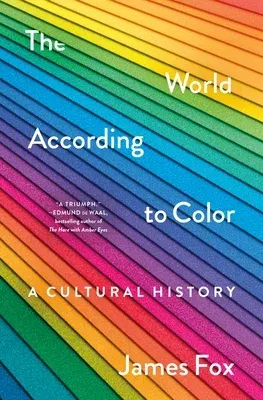A kaleidoscopic exploration that traverses history, literature, art,
and science to reveal humans' unique and vibrant relationship with
color.
We have an extraordinary connection to color--we give it meanings,
associations, and properties that last millennia and span cultures,
continents, and languages. In The World According to Color, James Fox
takes seven elemental colors--black, red, yellow, blue, white, purple,
and green--and uncovers behind each a root idea, based on visual
resemblances and common symbolism throughout history.
Through a series of stories and vignettes, the book then traces these
meanings to show how they morphed and multiplied and, ultimately, how
they reveal a great deal about the societies that produced them:
reflecting and shaping their hopes, fears, prejudices, and
preoccupations.
Fox also examines the science of how our eyes and brains interpret light
and color, and shows how this is inherently linked with the meanings we
give to hue. And using his background as an art historian, he explores
many of the milestones in the history of art--from Bronze Age gold-work
to Turner, Titian to Yves Klein--in a fresh way. Fox also weaves in
literature, philosophy, cinema, archaeology, and art--moving from Monet
to Marco Polo, early Japanese ink artists to Shakespeare and Goethe to
James Bond.
By creating a new history of color, Fox reveals a new story about humans
and our place in the universe: second only to language, color is the
greatest carrier of cultural meaning in our world.

